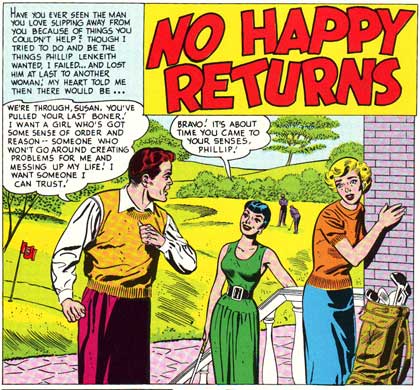I was going to snark about a week-old Jonah Goldberg column. “I confess, if Beck wasn’t a libertarian, I would find his populism terrifying.” But I see Will Wilkinson already said it: “If Mr Beck’s libertarian streak, such as it is, is all that keeps his demos-whispering puppetmastery from reducing Mr Goldberg to a quivering heap, it seems to me this weekend’s pageant of platitudes should not have been reassuring at all.” Cato’s loss.
The problem for Beck – and Goldberg – is obvious: it doesn’t make sense just to join Christian nationalism with libertarianism at the hip, and leave it at that. Conservatism as secular-theocratic/communitarian-individualistic/tribal-cosmopolitan philosophy. Conservatives will respond that it is the genius of conservatism to nurture a ‘fruitful tension’ hereabouts. My complaint against ‘fusionism’ is standard, and so is the stock ‘hobgoblin of little minds’ brush-off of my complaint. But let me try to say something brief about this that I haven’t seen said briefly in quite this way.
The rhetorical advantage of having a set of ‘principles’ that is, in effect, massively over-productive of permissions and prohibitions, is that you can take a ‘principled’ stand for pretty much anything, or against it, in roughly one step. You can call for vast individual sacrifices for the greater good. You can denounce any and all such calls for sacrifice. You can come out in favor of heavy-handed statism and paternalism. You can denounce everything except the minimal, night-watchman state. So it goes.
Your ‘principles’ are functioning as a volume knob on your preferences. If you like something, turn it up to 10. If you don’t like it, mute it out. You don’t have anything doing the job principles are generally thought to do: namely, acting as any sort of critical check.
Is this unfair to Beck – or Goldberg? After all, it’s probably true that political wisdom consists in judiciously balancing incommensurable values. Edmund Burke meets Isaiah Berlin-ish stuff. Yes, but the paradigm of respecting the crooked timber of humanity shouldn’t be treating your principles as servants that get you what you want, then melt discretely into the woodwork. You have to see, at a minimum, why Hayek wrote “Why I Am Not A Conservative”. If you don’t acknowledge that this makes serious trouble for Christian nationalist libertarianism, you simply aren’t a libertarian. Or a Christian nationalist. You’re just self-indulgent and/or a professional facilitator of self-indulgence in others.
(I am reminded of a post from a few years back in which Goldberg solved the riddle of how Hayek could fail to be a conservative by claiming he wasn’t talking about American conservatives. Which is, to put it mildly, a misreading.)
UPDATE: Yes, I know the rhetoric was rather blandly interfaith. But this is an example of what I am talking about, not a counter-example to it. If you think about it.
.)

